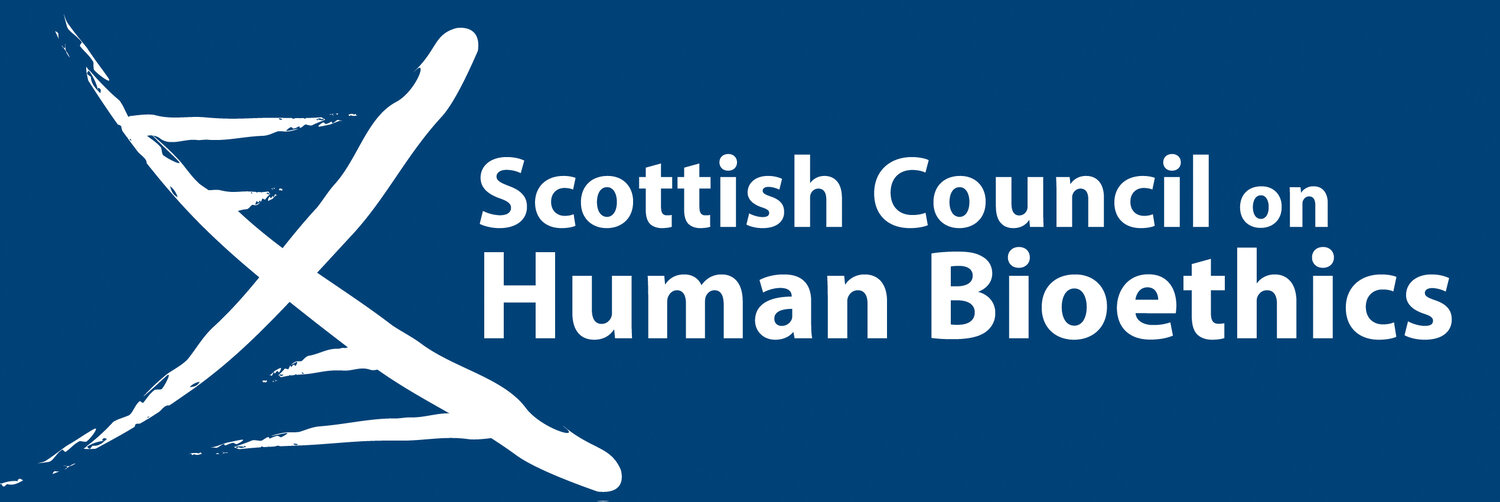SCHB Annual Conference 20/11/21
Scottish Council on Human Bioethics - Annual Conference 20 November 2021.
Topic - Is there a common foundation of bioethics?
The event examined the following questions: Why do so many views exist on bioethical matters? Is a consensus even possible? What are the principles on which persons base their reasoning?
Speakers:
Prof.Dr. John Wyatt: Emeritus Professor of Neonatal Paediatrics, Ethics & Perinatology at University College London.
Dr. Mackenzine Graham: Senior Research Fellow in Ethics with the Ethox Centre/Wellcome Centre for Ethics and Humanities at Oxford University.
The topic is vast and there is no simple answer. While both talks offered some basis for agreement, we realised that in our pluralistic society there is an absence of consensus in both the academic and practical worlds. Certainly in medicine controversies do arise that bring many moral/ethical opinions into play but there is also a lack of consensus about which one should be used. Having some sort of consensus would seem important in bioethics as point of it is to provide useful guidance in practice. It is definitely not just an issue for academics. That said, if medics were to wait for an all-encompassing moral theory, nothing would ever be done and the wait would be very long.
Whether we take as our basis the natural order, the legal system in which we live, the imperative to stop something bad, the application of theoretical rules or the vagueness of the 4 principles of Beauchamp and Childress, we understand, in that in general some things can be seen as good or bad. The divisions and problems come from the different philosophies which start to diverge and disagree on the interpretation of the basic realities which we perceive in the world around us, basic meanings, the importance of differing concepts and moralities.
Prof. Dr. Wyatt saw no way of uniting the mish-mash of different world views, as each should acknowledge that they belong to a certain community or culture. We need to accept the plurality. If this could be achieved with harmony and tolerance this would be a solution. There is however an inherent danger of a fragmented society, with sub-cultures, each with its own rule of law. Do we need to keep searching for integration of ideas, or do we accept that we cannot universally agree?
Dr. Mackenzie highlighted that we do not talk of the truth any more. The idea of phenomenology helps us understand that we all see things in our own way, but surely with a coming together of minds, we can come closer to a synthesis or agreement? Having the philosophical ideas is a background, but any moral reasoning needs a sound methodology and they need to be put it into practice. Clinicians need to make life and death decisions on their feet in various new circumstances, so need a guiding vision but it has to have flexibility to take differing circumstances into account.
We discussed a sense of the right thing to do for ourselves (autonomy) and for others (common good). We are experiencing the latter in COVID times through restriction of freedoms or taking jabs for the perceived good of society.
A formulation of ideas is attempted by Beauchamp and Childress and adopted in the medical school curriculum as RTTD - the right thing to do. Can their framework provide a structure to help us discuss common ground or common morality and agree on a “wise” way of doing things and making decisions in life about what is beneficent or good to do? Within this we have to recognise that common moralities and ideas on common ground can shift over time.
We discussed something deep within us, which does not only harness our intellect (mind) but our affectivity (heart) as well, using our whole human decision-making potential. The question of beauty was brought up, which could open an interesting arena
